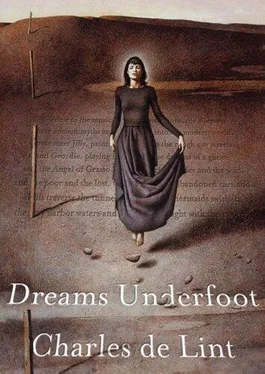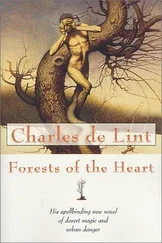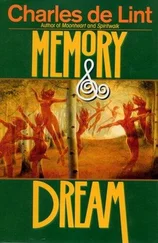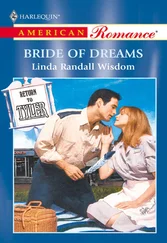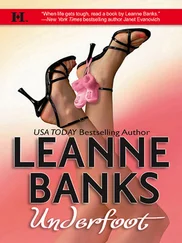That was a long time ago and I don’t know if he ever found out. If he did, he never told me. But lately I’ve been wondering about it. I think maybe they don’t dream. I think that if they do, they get pulled back into the dream world.
And if we’re not too careful, they can pull us back with them.
3
“I’ve been having the strangest dreams,” Sophie Etoile said, more as an observation than a conversational opener.
She and Jilly Coppercorn had been enjoying a companionable silence while they sat on the stone river wall in the old part of Lower Crowsea’s Market. The wall is by a small public courtyard, surrounded on three sides by old threestory brick and stone town houses, peaked with mansard roofs, the dormer windows thrusting out from the walls like hooded eyes with heavy brows. The buildings date back over a hundred years, leaning against each other like old friends too tired to talk, just taking comfort from each other’s presence.
The cobblestoned streets that web out from the courtyard are narrow, too tight a fit for a car, even the small imported makes. They twist and turn, winding in and around the buildings more like back alleys than thoroughfares. If you have any sort of familiarity with the area you can maze your way by those lanes to find still smaller courtyards, hidden and private, and deeper still, secret gardens.
There are more cats in Old Market than anywhere else in Newford and the air smells different.
Though it sits just a few blocks west of some of the city’s principal thoroughfares, you can hardly hear the traffic, and you can’t smell it at all. No exhaust, no refuse, no dead air. In Old Market it always seems to smell of fresh bread baking, cabbage soups, frying fish, roses and those tart, sharptasting apples that make the best strudels.
Sophie and Jilly were bookended by stairs going down to the Kickaha River on either side of them.
Pale yellow light from the streetlamp behind them put a glow on their hair, haloing each with her own nimbus of light—Jilly’s darker, all loose tangled curls,
Sophie’s a soft auburn, hanging in ringlets. They each had a similar slim build, though Sophie was somewhat bustier.
In the halfdark of the streetlamp’s murky light, their small figures could almost be taken for each other, but when the light touched their features as they turned to talk to each other, Jilly could be seen to have the quick, clever features of a Rackham pixie, while Sophie’s were softer, as though rendered by Rossetti or BurneJones.
Though similarly dressed with paintstained smocks over loose Tshirts and baggy cotton pants, Sophie still managed to look tidy, while Jilly could never seem to help a slight tendency towards scruffiness. She was the only one of the two with paint in her hair.
“What sort of dreams?” she asked.
It was almost four o’clock in the morning. The narrow streets of Old Market lay empty and still about them, except for the odd prowling cat, and cats can be like the hint of a whisper when they want, ghosting and silent, invisible presences. The two women had been working at Sophie’s studio on a joint painting, a collaboration that was going to combine July’s precise delicate work with Sophie’s current penchant for bright flaring colors and loosely rendered figures.
Neither was sure the experiment would work, but they’d been enjoying themselves immensely with it, so it really didn’t matter.
“Well, they’re sort of serial,” Sophie said. “You know, where you keep dreaming about the same place, the same people, the same events, except each night you’re a little further along in the story.”
Jilly gave her an envious look. “I’ve always wanted to have that kind of dream. Christy’s had them. I think he told me that it’s called lucid dreaming.”
“They’re anything but lucid,” Sophie said. “If you ask me, they’re downright strange.”
“No, no. It just means that you know you’re dreaming, when you’re dreaming, and have some kind of control over what happens in the dream.”
Sophie laughed. “I wish.”
4
I’m wearing a long pleated skirt and one of those white cotton peasant blouses that’s cut way too low in the bodice. I don’t know why. I hate that kind of bodice. I keep feeling like I’m going to fall out whenever I bend over. Definitely designed by a man. Wendy likes to wear that kind of thing from time to time, but it’s not for me.
Nor is going barefoot. Especially not here. I’m standing on a path, but it’s muddy underfoot, all squishy between my toes. It’s sort of nice in some ways, but I keep getting the feeling that something’s going to sidle up to me, under the mud, and brush against my foot, so I don’t want to move, but I don’t want to just stand here either.
Everywhere I look it’s all marsh. Low flat fens, with just the odd crack willow or alder trailing raggedy vines the way you see Spanish moss do in pictures of the Everglades, but this definitely isn’t Florida. It feels more Englishy, if that makes sense.
I know if I step off the path I’ll be in muck up to my knees.
I can see a dim kind of light off in the distance, way off the path. I’m attracted to it, the way any light in the darkness seems to call out, welcoming you, but I don’t want to brave the deeper mud or the pools of still water that glimmer in the pale starlight.
It’s all mud and reeds, cattails, bulrushes and swamp grass and I just want to be back home in bed, but I can’t wake up. There’s a funny smell in the air, a mix of things rotting and stagnant water. I feel like there’s something horrible in the shadows under those strange overhung trees—especially the willows, the tall sharp leaves of sedge and water plantain growing thick around their trunks. It’s like there are eyes watching me from all sides, dark misshapen heads floating froglike in the water, only the eyes showing, staring. Quicks and bogles and dark things.
I hear something move in the tangle of bulrushes and burreeds just a few feet away. My heart’s in my throat, but I move a little closer to see that it’s only a bird caught in some kind of a net.
Hush, I tell it and move closer.
The bird gets fanatic when I put my hand on the netting. It starts to peck at my fingers, but I keep talking softly to it until it finally settles down. The net’s a mess of knots and tangles and I can’t work too quickly because I don’t want to hurt the bird.
You should leave him be, a voice says, and I turn to find an old woman standing on the path beside me. I don’t know where she came from. Every time I lift one of my feet it makes this creepy sucking sound, but I never even heard her approach.
She looks like the wizened old crone in that painting Jilly did for Geordie when he got onto this kick of learning fiddle tunes with the word “hag” in the title: “The Hag in the Kiln,”
“Old Hag You Have Killed Me,”
“The Hag With the Money” and god knows how many more.
Just like in the painting, she’s wizened and small and bent over and ... dry. Like kindling, like the pages of an old book. Like she’s almost all used up. Hair thin, body thinner. But then you look into her eyes and they’re so alive it makes you feel a little dizzy.
Helping such as he will only bring you grief, she says.
I tell her that I can’t just leave it.
She looks at me for a long moment, then shrugs. So be it, she says.
I wait a moment, but she doesn’t seem to have anything else to say, so I go back to freeing the bird.
But now, where a moment ago the netting was a hopeless tangle, it just seems to unknot itself as soon as I lay my hand on it. I’m careful when I put my fingers around the bird and pull it free. I get it out of the tangle and then toss it up in the air. It circles above me in the air, once, twice, three times, cawing. Then it flies away.
Читать дальше
